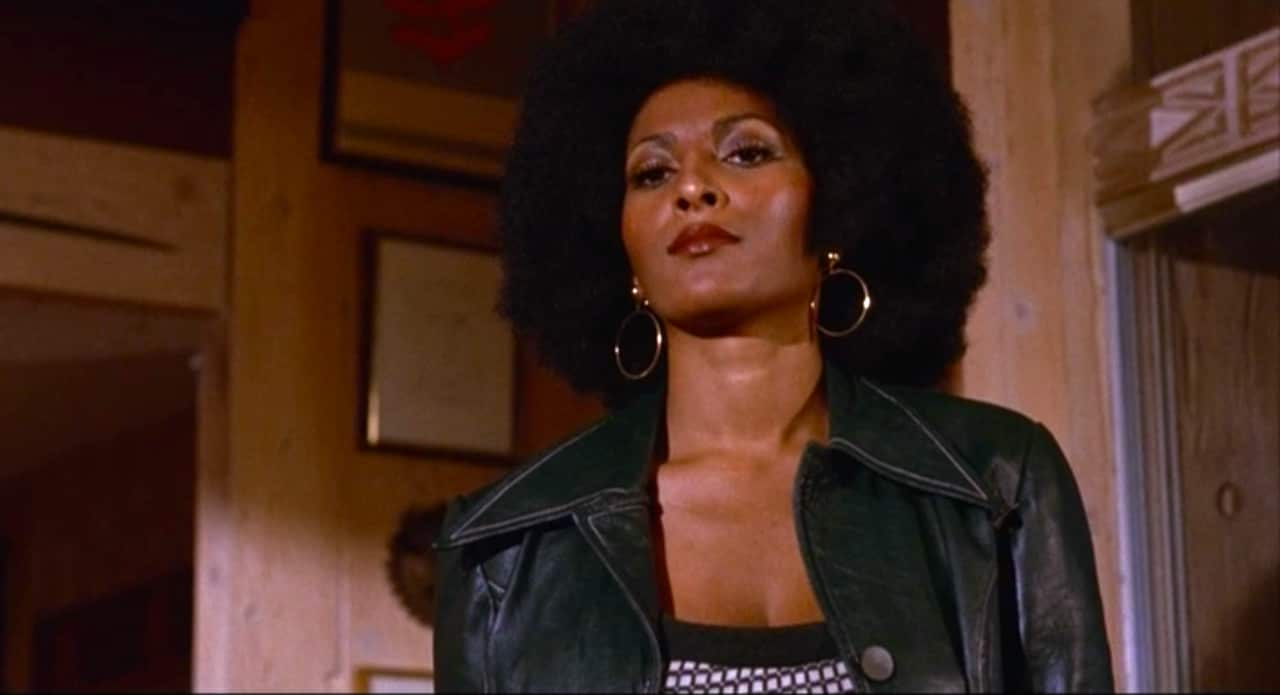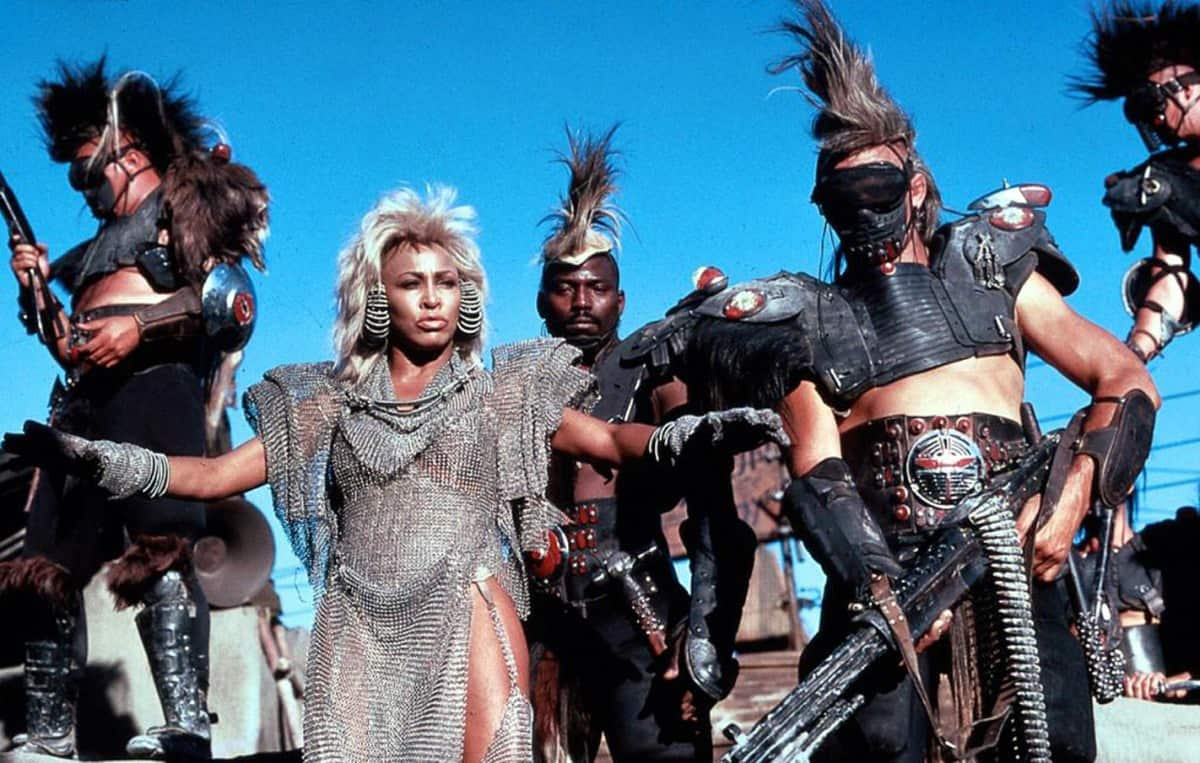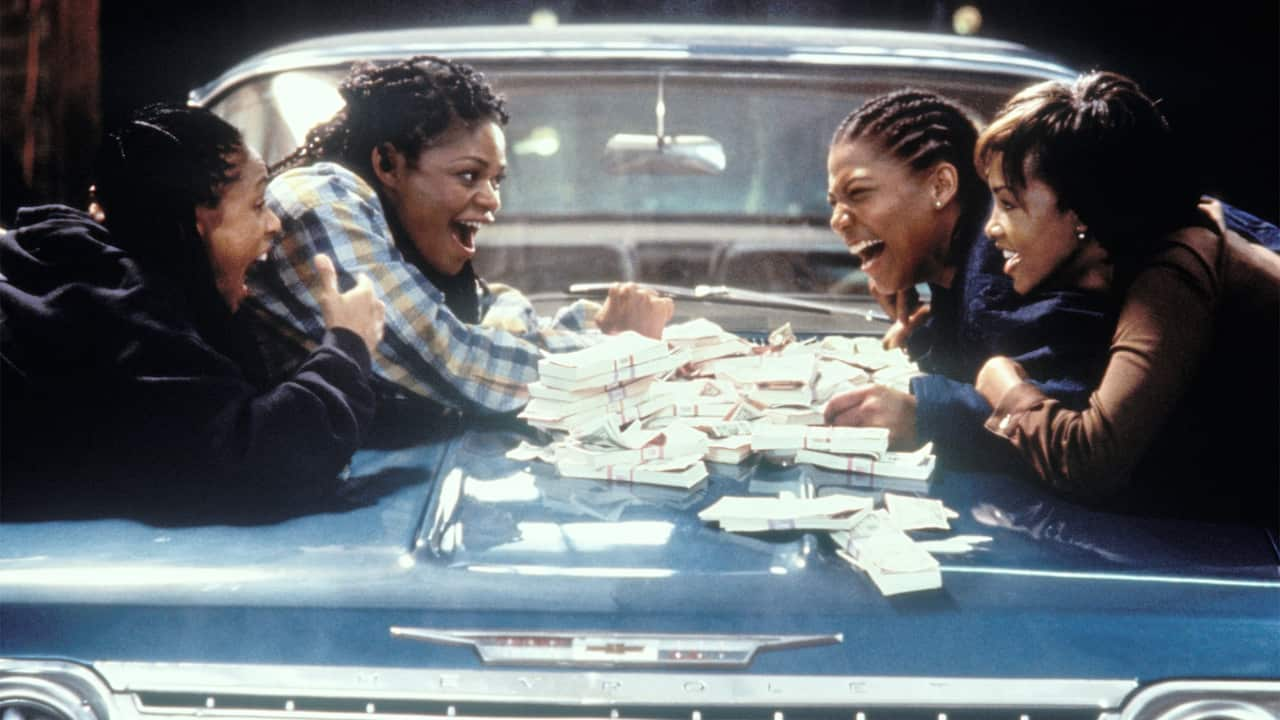Long before he gave us Straight Outta Compton (2015) and The Fate of the Furious (2017), Friday director F. Gary Gray gave us 1996’s Set It Off, a sleek, violent, angry AF heist thriller with a feminist bent.
Starring Vivica A. Fox, Queen Latifah, Jada Pinkett and Kimberly Elise, the film is a sustained look at the injustices visited upon black women. Our four heroines, having suffered a litany of indignities – one is unjustly fired, another’s child is taken from her, a third’s brother is murdered by police – pay back the violence with violence, and hate with hate.
Yet Set It Off is not alone in this respect. For one thing, it’s not a million miles away from last year’s Widows, which also saw a newly minted crew of female criminals undertake a daring robbery. Sure, they were a diverse group of women, but the story was squarely centred on African American actor Viola Davis’ character, and it resolutely forefronts how its protagonists are mistreated by the mostly white men in their lives.
Genre films – crime thrillers, horror movies, even sci-fi and fantasy – are spaces where ideas and themes like these can be explored. There’s a long tradition of kick-ass black women in genre cinema, feminist icons one and all.

Pam Grier is, unarguably, ground zero for this. First coming to prominence in 1971 with two “women in prison” exploitation films, Women in Cages and The Big Doll House, Grier really hit her stride with Coffy (1973) and Foxy Brown (1974), blaxploitation revenge thrillers in which she gains bloody payback on drug syndicates who caused the death of her sister in the earlier film, and her boyfriend in the later. Grier was – and is still – the Queen of Blaxploitation, a sensual, vengeful urban goddess, embodying a kind of black feminine strength that had not been seen on screen before.
She has, however, inspired plenty of respectful imitators in the years since, up to and including last year’s Proud Mary, which saw Taraji P. Henson as a tough assassin who, feeling the pangs of conscience, finds herself protecting the young son of one of her deserving victims. Babak Najafi’s film not only deliberately echoes Pam Grier’s ‘70s oeuvre, it playfully inverts the strongly gendered “tough guy and cute kid” trope seen in everything from the Japanese Lone Wolf and Cub chambara films to Luc Besson’s Leon (1994) to the superhero Western, Logan (2017).
Not all goddesses are on the side of the angels, though, and the legendary Tina Turner brought her commanding presence to two iconic semi-villainous roles in two very diverse films. In Ken Russell’s surreal rock opera Tommy (1975), based on the eponymous album by The Who, she was The Acid Queen, an LSD-dealing prostitute whose drugs confer the gift of prophecy. A decade later she was the chainmail-clad Aunty Entity, iron-fisted ruler of Bartertown, who goes toe to toe with Mel Gibson’s messianic Road Warrior in Mad Max Beyond Thunderdome (1985).

Playing Tina Turner in What’s Love Got To Do With It (1993) scored Angela Bassett an Oscar nomination and a Golden Globe win, and she also played Dr. Betty Shabazz, Malcolm X’s wife and later widow, in both Malcolm X (1992) and Panther (1995).
In her more explicitly genre-based roles, however, Bassett embodied steely resolve as shadowy government agent Amanda Waller in 2011’s Green Lantern (a role later taken on by Viola Davis in 2016’s Suicide Squad). And, as security specialist Lornette “Mace” Mason, she provided the muscle for Ralph Fiennes’ weaselly VR dealer in Kathryn Bigelow’s criminally underrated cyberpunk thriller, Strange Days (1995).
It was in 2018 that Bassett’s penchant for playing strongly matriarchal real-world figures – she also portrayed Katherine Jackson in The Jacksons: An American Dream, Voletta Wallace in Notorious, and Coretta Scott King in Betty and Coretta – really came together with her occasional forays into the genre realm with her role as Ramonda, Queen Mother of Wakanda, in Marvel’s Black Panther.
Ryan Coogler’s acclaimed superhero dynastic drama actually offers us a plethora of strong black women to cheer for and identify with, from Danai Gurira’s stoic warrior, Okoye; to Lupita Nyong’o’s capable special agent, Nakia; to Letitia Wright’s sassy, brilliant tech genius, Shuri; proving that while women of colour no longer need to cleave so closely to the Grier archetype of the ‘70s, genre cinema remains an important area of representation in the broader culture.
Set It Off airs on Saturday, 4 May at 8:30 pm on NITV. Set It Off will stream at SBS On Demand after broadcast.
Watch 'Set It Off'
NITV: Sunday 4 May, 8:30pmSBS On Demand after broadast
USA, 1996

